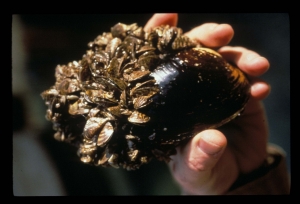
Welcome! Click on a tab below to find books, articles, and websites for use in this course.
You'll need a College of DuPage Library card in order to use most of the resources below from off campus. If your card is not working, it may need to be reactivated.
Questions? Feel free to use my contact info to the right, stop by the Reference Desk, or contact us by email or chat
Finding (and Narrowing) a Topic
Your professor has listed several topics for you to choose from. To narrow a topic, try using Google Scholar to search for specific articles. Want to use Google Scholar to help identify what you have access to in our library? Watch this short tutorial on how to do that!
You can also search our catalog for print subscriptions we own.
Finding Credible Sources
Articles
Scientific research can be best found in academic databases and journals. Here are the best ways to look for information:
Science is one of our online databases that you can search from on or off-campus.
The best ways to search Nature are:
- Browse through the print issues upstairs (and remember that scanning is free).
- Head to the Nature website, browse for a recent article title, and then find the article in our print journals. (Remember that we only subscribe to Nature, not the related titles like Cell Research.)
Scientific American is a respected scientific magazine and can be found in full text through Academic Search Complete. Need an image or table from your article? The journal is in full-text in JSTOR except for the current 5 years, and we retain two years of the most current issues in our print collection. . Remember that if you find an article in Scientific American that does not reference another scholarly article, you'll want to also search Science or Nature for info on that topic (links above.)
Having trouble reading your research article? Check out my Reading Research Articles link above.
Websites
While you're doing Google searches to either narrow your topic or in order to dig up more information on certain subject, you want to be careful to decide if the information you find is trustworthy.
When it comes to science, nearly everyone has opinions: should we be labeling genetically modified food for consumer's awareness? What will fracking do for our economy or our groundwater supply? Your job is to evaluate the information you can find through Google and Bing to find the good websites--those written by authors you can trust, with good and up-to-date information.
Authorship: Who created this website? What is their background on the topic? Are they trustworthy?
Bias: Why was the website created? What point of view does the author have? Does that limit the facts they present or how the facts are presented?
Date: How old is the information that is presented? Is it still accurate?
Questions? Check out the COD Library's guide to evaluating websites.
Patchwriting or Paraphrase?
Confused about when you would need to cite, or where the line is drawn between paraphrasing and patchwriting? Sometimes students believe that changing one or two words from a quotation means that quotation marks are not necessary. Good paraphrasing is transformative: the writer explains the main ideas of another author in his or her own words. Paraphrasing also requires a citation.
Take a moment to look at the following sources to see definitions and good and bad examples of student writing.
- The COD Plagiarism Tutorial has samples, quiz questions to test your knowledge, and helpful explanations.
- Take a look at the COD patchwriting definition at the bottom of the page.
- See a discussion of patchwriting from Lund University (and click "see example" to see how student work compares to an original source.)
Using APA Style
Find directions about how to cite your sources in APA Style on the library citation guide.
You can also always check out the Purdue OWL website, which has APA citation guides and even a sample APA paper.
Google Scholar will also create citations.
Finally, you are welcome to use NoodleBib if you'd like to use a program to create and organize your citations. You must "Create a New Folder" when you use NoodleBIB for the first time. Click on "I am citing a(n):," choose the type of item you are citing, and then fill in the online form. Your bibliography will be formatted for you.